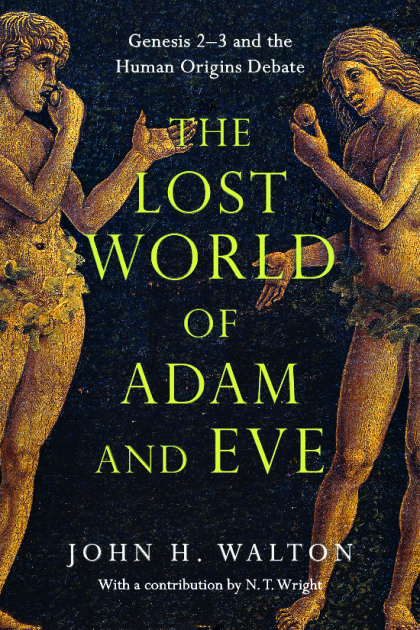
I’ve written a lot over the past two months on the topics of evolutionary biology and theology, perhaps more than some of you required. And yet I’ve also only scratched the surface of the relevant issues. Rather than continue ad nauseum, I thought I’d conclude this series with some suggestions for further reading. This won’t be an exhaustive bibliography; if you want something more comprehensive, you might try the relevant sections of the American Scientific Affiliation’s categorized resources or this reading list from the Jesus Creed blog. What I’ve collected here is some of the writing that has influenced my thinking and resources that I and my collaborators and commenters think are interesting and helpful. Feel free to add your own recommendations in the comments!
Overviews
ESN contributor and commenter on this series Gerald Rau wrote Mapping the Origins Debate to provide a survey of different Christian perspectives on the multiple origins questions, including the origin of life and of humans discussed here. He helpfully discusses each view in its philosophical context and how it relates to science and the data. This blog series joins a conversation mid-stream; Rau’s book is a good resource for understanding why there is a conversation in the first place and who is participating. (Reviewed on ESN by Bob Trube)
Rau also recommends Denis Alexander’s Creation or Evolution: Do we have to choose? as a good introduction to the topic.
Tom Ingebritsen wrote a blog series for ESN on science and Christian theology, with an emphasis on origins questions. He also surveys some of the different perspectives and then elaborates on why he affirms an evolutionary natural history and how he reconciles that view with the Bible.
In that series he mentions Alister McGrath’s The Open Secret: A New Vision for Natural Theology which touches more broadly on the topic of how to read the special revelation of scripture and the general revelation of nature together. McGrath’s perspective is very similar to my own; he articulates it much more clearly and with greater philosophical and theological rigor.
Francis Collins’ books, including The Language of God and The Language of Science and Faith (with Karl Giberson) are also worthwhile. And the new BioLogos-curated book How I Changed My Mind About Evolution looks like a helpful collection of personal testimonies.
Theology
There are several books that deal with questions that arise around Adam (and Eve, even if she doesn’t always get title billing). Four Views on the Historical Adam provides a survey on Adam, just like the title says. One of the contributors to that volume, John Walton, has also written The Lost World of Genesis One and The Lost World of Adam and Eve in which he helps to place the first chapters of Genesis into the cultural context of their original audiences. His take may not be for everyone, but I think it has value simply in helping to read familiar passages with fresh eyes.
Another recent contribution is Peter Enns’ The Evolution of Adam. Notably, Enns also deals with Paul’s writings about Adam, which come up frequently as a counterpoint to the idea that Genesis 1-3 may not refer to a specific historical couple.
Mike Stell who joined me in a conversation for part of this series, recommends Oliver Crisp’s essay Sin in Christian Dogmatics. We both heard Crisp speak at BioLogos last year on a Reformed perspective of original sin in light of an evolutionary natural history; I found his talk helpful and so I expect the essay will be as well.

Coincidentally, BioLogos began a series on God’s divine action in relation to evolutionary biology around the same time I did. It includes contributions from Alvin Plantinga, Robert John Rusell and Thomas Jay Oord on topics including miracles and theodicy. BioLogos has plenty of other resources on evolutionary biology and theology; perhaps a good place to start are their answers to common questions about human origins. (Shameful plug: I wrote for BioLogos about the depictions of evolution and of theology in this summer’s X-Men: Apocalypse as a complement to this series. I’ve also written for them on what Star Wars reveals about our collective attitudes towards physics and biology. I wonder if Star Trek Beyond will have any material of interest to them?)
Speaking of Thomas Jay Oord, his recent book The Uncontrolling Love of God is all about the problem of evil. While it doesn’t have a strong emphasis on evolution, Oord is mindful of the need for a theodicy which is consistent with an evolutionary natural history. You can read more of my thoughts on the book here.
Evolutionary Biology
I think Neil Shubin’s Your Inner Fish is a helpful introduction to the topic of evolutionary biology. It uses human anatomy as an entry point, making the topic relevant to human experience and more relatable than fossils or bacteria (and I say that as probably the person you know who is most enthusiastic about microorganisms). The book was also turned into a mini-series on PBS, if that’s more your speed.
Martin Nowak and Roger Highfield’s Super Cooperators explores how cooperation and altruism can evolve. It’s a valuable contribution because it helps dispel the image that evolution is all about ruthless and bloody competition. Nowak is also a Christian and shares some theological reflections along the way. He’s not a name that comes up among the usual faith & science suspects, so I was pleasantly surprised by his low-key approach here.
Another surprising book in a different way is John Maynard Smith and Eörs Szathmáry’s The Major Transitions in Evolution. Although neither author seemed inclined towards accommodating religious beliefs, I was struck by how describing evolutionary natural history in this way painted an incredible portrait of self-interest begetting a form of selflessness, which in turn begets a new, inclusive sense of self. Each of the transitions they discuss involves individual, autonomous entities (genes, cells, etc.) giving up autonomy to gain a new corporate existence.
The big story in evolutionary biology these days is the question of whether the field needs an updated framework in the form of the so-called “extended evolutionary synthesis.” The seminal book making the case for this new framework is Evolution, the Extended Synthesis edited by Massimo Pigliucci and Gerd Müller. The book comes recommended by Gerald Rau.
That volume provides an overview of a fairly broad set of subdisciplines within evolutionary biology. Other extended synthesis advocates have written books focused on one specific area. Of these, I recommend Sean Carroll’s Endless Forms Most Beautiful on the topic of developmental biology, which explains how diverse anatomies could have evolved (there’s a companion website where you can evolve your own shapes), and Andreas Wagner’s Arrival of the Fittest on the robustness of metabolic pathways and how that facilitates their evolution.
Finally, if you are interested more specifically in the questions of human population genetics and why our best estimates suggest there were never just two Homo sapiens, Dennis Venema has an informative and detailed blog series on the topic over at BioLogos.
I hope there’s something here of value to you for your continued exploration of this challenging but also exciting and rich topic of how we came to be what we are. Again, if you have additional resources that you’ve found helpful, add them in the comments. And if you have a question about evolutionary biology that I didn’t cover–or questions about another science topic you’d like to see me address in the future–those are welcome in the comments also.
Andy has worn many hats in his life. He knows this is a dreadfully clichéd notion, but since it is also literally true he uses it anyway. Among his current metaphorical hats: husband of one wife, father of two teenagers, reader of science fiction and science fact, enthusiast of contemporary symphonic music, and chief science officer. Previous metaphorical hats include: comp bio postdoc, molecular biology grad student, InterVarsity chapter president (that one came with a literal hat), music store clerk, house painter, and mosquito trapper. Among his more unique literal hats: British bobby, captain’s hats (of varying levels of authenticity) of several specific vessels, a deerstalker from 221B Baker St, and a railroad engineer’s cap. His monthly Science in Review is drawn from his weekly Science Corner posts — Wednesdays, 8am (Eastern) on the Emerging Scholars Network Blog. His book Faith across the Multiverse is available from Hendrickson.

Terrific list of resources! Thanks!